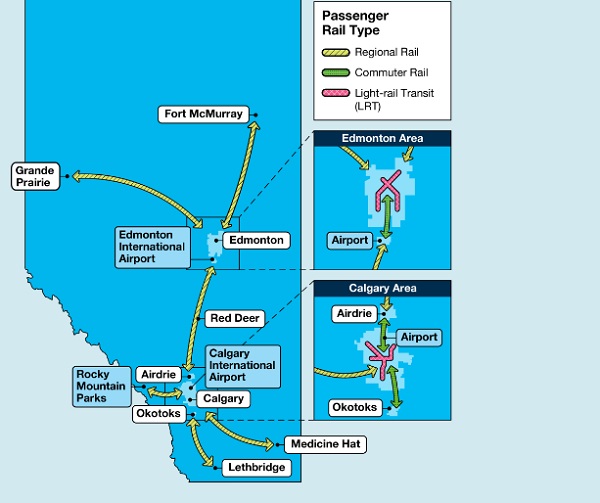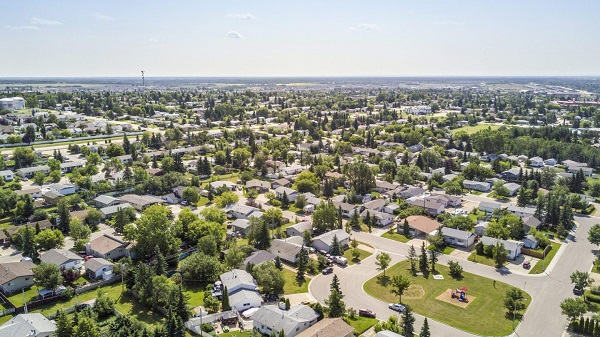Alberta
New mandatory province-wide measures to battle COVID will affect every business and family

From the Province of Alberta
New mandatory provincewide measures to protect lives
New mandatory health measures go into effect immediately to protect lives.
Expanded health measures will be in effect provincewide. All Albertans, businesses, organizations and service providers must follow all new health measures. These restrictions will be in place for a minimum of four weeks.
“Alberta has sought to protect both lives and livelihoods from the beginning of the pandemic. The recent surge in COVID-19 hospitalizations will threaten our health-care system and the lives of many vulnerable Albertans unless further action is taken now. With the promise of a vaccine early in 2021, we can see the end of this terrible time. But all Albertans must take this more seriously than ever by staying home whenever possible, and following these new measures.”
“Alberta’s case numbers and hospitalizations have reached a point where we must take stricter measures in order to protect capacity in our health system. These mandatory new health measures are some of the strictest we’ve implemented, but they are absolutely critical to the future of our province.”
“These mandatory measures will help us slow the spread of COVID-19. This will require individual sacrifices that are necessary to protect our province. It’s not just about one person, it’s about doing what we can to protect and save our loved ones, colleagues, neighbours, and even strangers. Following these public health measures is how we as Albertans care for and protect each other.”
New expanded mandatory measures come into effect Dec. 8 for social gatherings and mandatory masking. All others come into effect at 12:01 a.m., Dec. 13.
Social gatherings – immediate
- All indoor and outdoor social gatherings – public and private – are prohibited.
- Close contacts are limited to household members only.
- Individuals who live alone will be allowed up to two close contacts for in-person visiting, with those two people remaining the same for the duration of the restriction period.
- Festivals, parades, events, concerts, exhibitions, competitions, sport and performance remain prohibited.
Masking – immediate
- The mandatory indoor public masking requirement will be extended provincewide.
- Public spaces include locations where a business or entity operates and is applicable to employees, visitors and the general public.
- Applies to all indoor workplaces and facilities outside the home.
- Farm operations are excluded.
- Rental accommodations used solely for the purposes of a private residence are excluded.
Places of worship – starting at 12:01 a.m., Dec. 13
- All places of worship will be limited to 15 per cent of fire code occupancy for in-person attendance.
- Virtual or online services are strongly encouraged.
- Drive-in services where individuals do not leave their vehicles and adhere to guidance will be permissible and are not subject to capacity restrictions.
- Mandatory mask mandate, physical distancing and other guidelines remain in place.
Retail – starting at 12:01 a.m., Dec. 13
- Retail services must reduce customer capacity to 15 per cent of fire code occupancy, with a minimum of five customers permitted.
- Curbside pickup, delivery and online services are encouraged.
- Shopping malls will be limited to 15 per cent of fire code occupancy.
Closures – starting at 12:01 a.m., Dec. 13
- Restaurants, pubs, bars, lounges and cafes will be closed to in-person service.
- Only takeout, curbside pickup and delivery services are permitted.
- Casinos, bingo halls, gaming entertainment centres, racing entertainment centres, horse tracks, raceways, bowling alleys, pool halls, legions, and private clubs will be closed.
- Recreational facilities – fitness centres, recreation centres, pools, spas, gyms, studios, day and overnight camps, indoor rinks and arenas – will be closed.
- Outdoor recreation is permitted, but facilities with indoor spaces except for washrooms will be closed.
- Entertainment businesses and entities – libraries, science centres, interpretive centres, museums, galleries, amusement parks and water parks – will be closed.
- Hotels may remain open but must follow restrictions – no spas, pools or in-person dining. Room services only.
- Personal and wellness services, including hair salons, nail salons, massage, tattoos, and piercing, will be closed.
Health services, including physiotherapy or acupuncture, social or protective services, shelters for vulnerable persons, emergency services, child care, and not-for-profit community kitchens or charitable kitchens will remain open for in-person attendance.
Work from home – starting at 12:01 a.m., Dec. 13
- Mandatory work from home measures will be implemented unless the employer determines that work requires a physical presence for operational effectiveness.
Closures – ongoing from Nov. 27
- Entertainment businesses and entities – community halls and centres, indoor children’s play centres and indoor playgrounds, theatres, auditoriums, concert halls, and community theatres, nightclubs, banquet halls and conference centres, indoor and outdoor festivals, concerts with the exception of drive-in events, tradeshows, and sporting events or competitions, remain closed.
Alberta
Passenger rail experts from across the world to inform Alberta’s Passenger Rail Master Plan

Alberta’s future runs on rails
Alberta’s government is bringing together passenger rail experts from across the world to share best practices and inform the province’s Passenger Rail Master Plan.
As Alberta experiences record growth and evolving transportation needs, passenger rail infrastructure and services will be vital for enhancing accessibility and connecting communities. To support this, Alberta’s government is developing a Passenger Rail Master Plan to build the optimal passenger rail system for the province.
As part of the development of the plan, Alberta’s government is hosting a one-day forum to provide an opportunity for Alberta communities, industry and experts to collaborate and share information on passenger rail opportunities and challenges. The forum includes experts from Ontario, Quebec, California, Italy, Spain and Japan who are involved in passenger rail procurement, governance and operations. The sessions will allow for the sharing of best practices and lessons learned on passenger rail planning and development.
“Alberta was built by innovators and visionaries who saw potential in our province and its people. They believed that if you could dream it, you could achieve it. We believe there is opportunity and demand for passenger rail services in Alberta. Today’s forum marks an important step forward in the development of our Passenger Rail Master Plan and in achieving our vision for passenger rail.”
In line with the province’s commitment to engaging Albertans throughout the development of the Passenger Rail Master Plan, a survey has been launched to seek public input on passenger rail. Albertans are invited to complete the online survey by Dec. 20 to help shape the future of passenger rail in Alberta. There will be additional opportunities for Albertans to have their say on passenger rail in the future, including regional open houses which will be held in early 2025.
“Feedback from Albertans, Alberta municipalities, Indigenous communities and industry will be critically important to developing passenger rail services in Alberta. I encourage all Albertans to complete the online survey to help inform a shared vision for passenger rail to enhance accessibility, efficiency, and connectivity across the province.”
In April 2024, Alberta’s government shared its vision for passenger rail and announced the development of the Passenger Rail Master Plan for Alberta. The province’s vision is for an Alberta passenger rail system that includes public, private or hybrid passenger rail, including:
- a commuter rail system for the Calgary area that connects surrounding communities and the Calgary International Airport to downtown
- a commuter rail system for the Edmonton area that connects surrounding communities and the Edmonton International Airport to downtown
- passenger rail that runs between Calgary and Edmonton and the Rocky Mountain parks
- a regional rail line between Calgary and Edmonton, with a local transit hub in Red Deer
- municipal-led LRT systems in Calgary and Edmonton that integrate with the provincial passenger rail system
- rail hubs serving the major cities that would provide linkages between a commuter rail system, regional rail routes and municipal-led mass transit systems
The vision includes a province-led “Metrolinx-like” Crown corporation with a mandate to develop the infrastructure and oversee daily operations, fare collection/booking systems, system maintenance, and planning for future system expansion.
Quick facts
- The Passenger Rail Survey will be open until Dec. 20.
- Alberta’s Passenger Rail Master Plan is expected to be completed by summer 2025 and will include:
- a comprehensive feasibility assessment
- financial and delivery model options
- governance and operations recommendations
- a 15-year delivery plan
- public engagement
Related information
Alberta
REPORT: Alberta municipalities hit with $37 million carbon tax tab in 2023

Grande Prairie. Getty Images photo
From the Canadian Energy Centre
Federal cash grab driving costs for local governments, driving up property taxes
New data shows the painful economic impact of the federal carbon tax on municipalities.
Municipalities in Alberta paid out more than $37 million in federal carbon taxes in 2023, based on a recent survey commissioned by Alberta Municipal Affairs, with data provided to the Canadian Energy Centre.
About $760,000 of that came from the City of Grande Prairie. In a statement, Mayor Jackie Clayton said “if the carbon tax were removed, City property taxes could be reduced by 0.6 per cent, providing direct financial relief to residents and businesses in Grande Prairie.”
Conducted in October, the survey asked municipal districts, towns and cities in Alberta to disclose the amount of carbon tax paid out for the heating and electrifying of municipal assets and fuel for fleet vehicles.
With these funds, Alberta municipalities could have hired 7,789 high school students at $15 per hour last year with the amount paid to Ottawa.
The cost on municipalities includes:
Lloydminster: $422,248
Calgary: $1,230,300 (estimate)
Medicine Hat: $876,237
Lethbridge: $1,398,000 (estimate)
Grande Prairie: $757,562
Crowsnest Pass: $71,100
Red Deer: $1,495,945
Bonnyville: $19,484
Hinton: $66,829
Several municipalities also noted substantial indirect costs from the carbon tax, including higher rates from vendors that serve the municipality – like gravel truck drivers and road repair providers – passing increased fuel prices onto local governments.
The rising price for materials and goods like traffic lights, steel, lumber and cement, due to higher transportation costs are also hitting the bottom line for local governments.
The City of Grande Prairie paid out $89 million in goods and services in 2023, and the indirect costs of the carbon tax “have had an inflationary impact on those expenses” in addition to the direct costs of the tax.
In her press conference announcing Alberta’s challenge to the federal carbon tax on Oct. 29, 2024, Premier Danielle Smith addressed the pressures the carbon tax places on municipal bottom lines.
“In 2023 alone, the City of Calgary could have hired an additional 112 police officers or firefighters for the amount they sent to Ottawa for the carbon tax,” she said.
In a statement issued on Oct. 7, 2024, Ontario Conservative MP Ryan Williams, shadow minister for international trade, said this issue is nationwide.
“In Belleville, Ontario, the impact of the carbon tax is particularly notable. The city faces an extra $410,000 annually in costs – a burden that directly translates to an increase of 0.37 per cent on residents’ property tax bills.”
There is no rebate yet provided on retail carbon pricing for towns, cities and counties.
In October, the council in Belleville passed a motion asking the federal government to return in full all carbon taxes paid by municipalities in Canada.
The unaltered reproduction of this content is free of charge with attribution to the Canadian Energy Centre.
-

 Brownstone Institute1 day ago
Brownstone Institute1 day agoThe Most Devastating Report So Far
-

 Economy2 days ago
Economy2 days agoCOP 29 leaders demand over a $1 trillion a year in climate reparations from ‘wealthy’ nations. They don’t deserve a nickel.
-

 Censorship Industrial Complex1 day ago
Censorship Industrial Complex1 day agoAnother Mass Grave?
-

 ESG12 hours ago
ESG12 hours agoCan’t afford Rent? Groceries for your kids? Trudeau says suck it up and pay the tax!
-

 Alberta1 day ago
Alberta1 day agoMAiD In Alberta: Province surveying Albertans about assisted suicide policies
-

 Energy2 days ago
Energy2 days agoOttawa’s proposed emission cap lacks any solid scientific or economic rationale
-

 Alberta1 day ago
Alberta1 day agoOn gender, Alberta is following the science
-

 International13 hours ago
International13 hours agoElon Musk praises families on X: ‘We should teach fear of childlessness,’ not pregnancy


